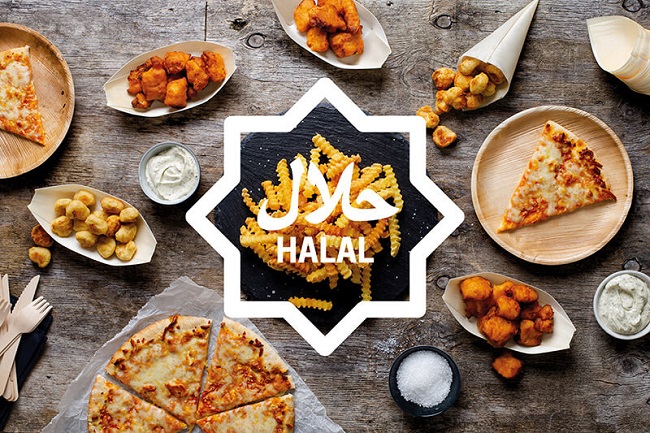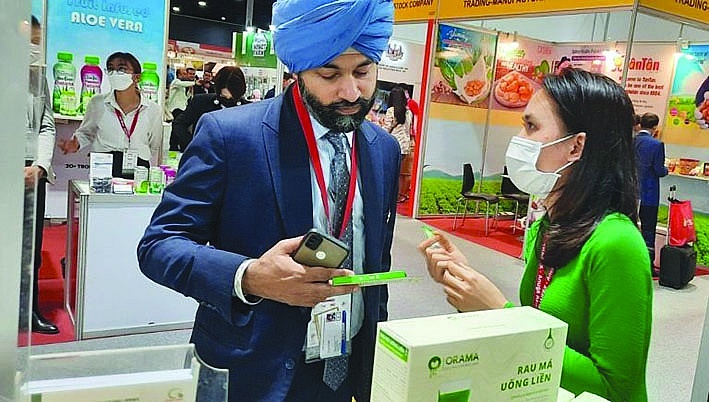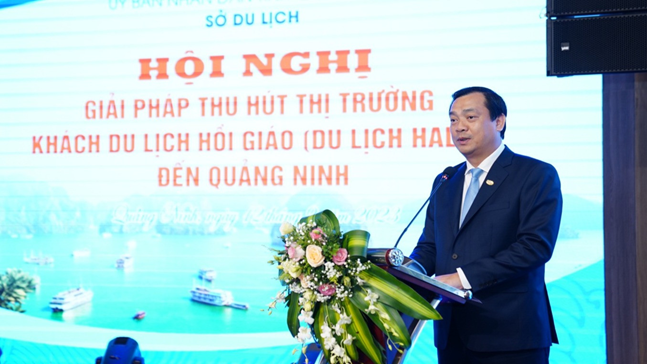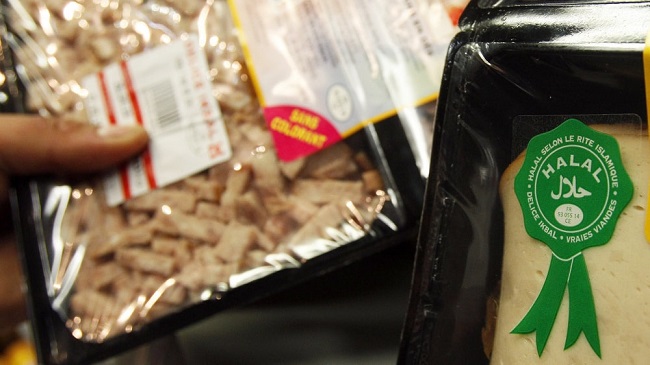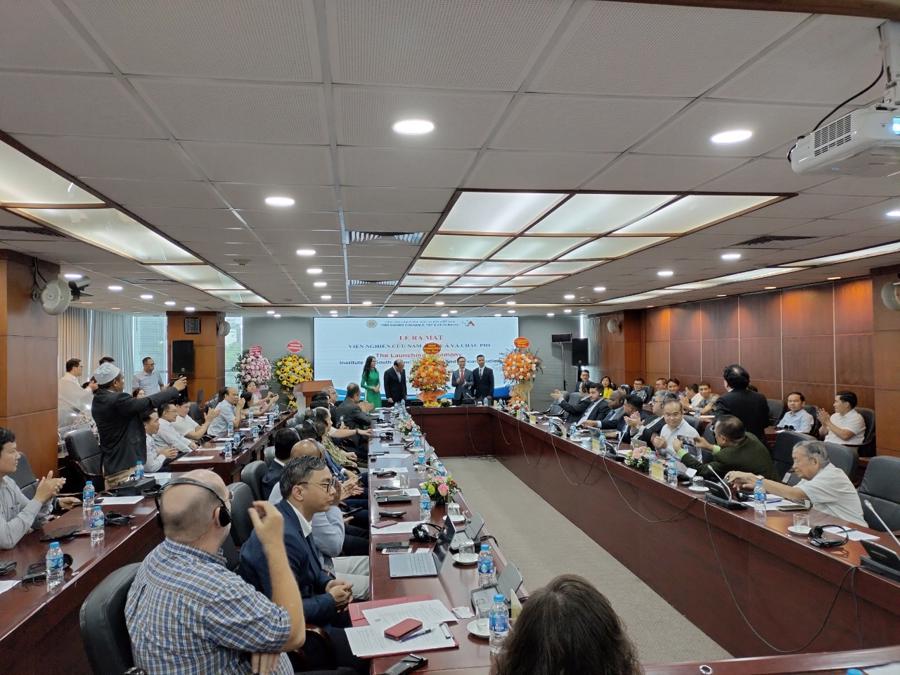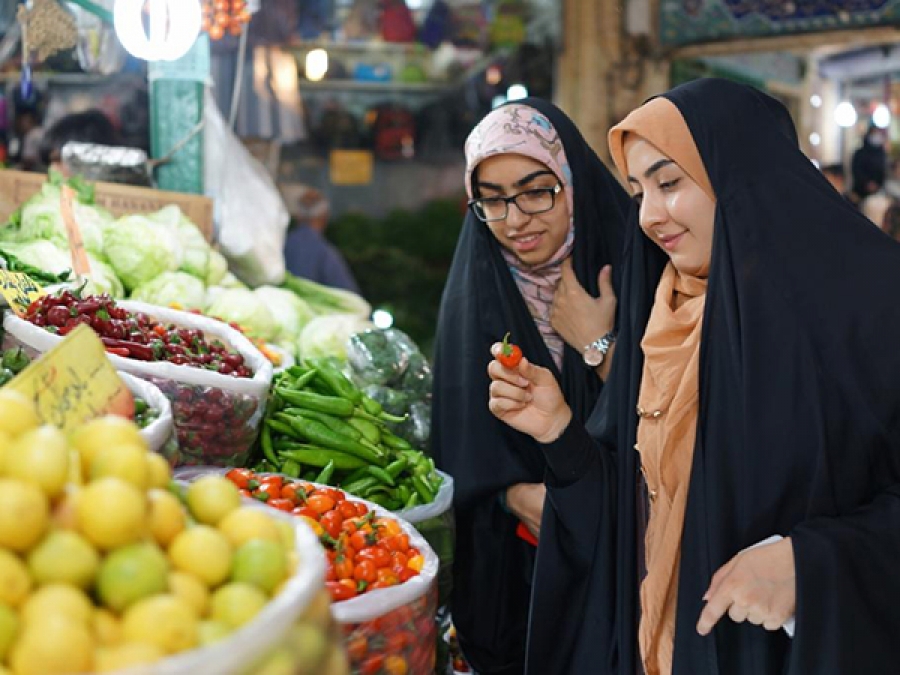Halal is not only defined by the strict regulations of an emerging industry but also represents the moral foundation and cultural identity of the global Muslim community.
“Halal” is an Arabic term meaning “permissible” or “lawful,” in contrast to “Haram,” which means “forbidden” or “prohibited.”
Today, Halal is a comprehensive standard encompassing many aspects of life, from food to finance, fashion, and even business ethics. The Halal industry is estimated to be worth trillions of dollars and spans the globe.
The exponential growth of the Muslim population, along with increased awareness and adherence to Halal principles, has driven this market to expand rapidly.
From Moral and Religious Standards…
In the food processing and food service industries, Halal is seen as the highest standard, strictly enforced. It measures the suitability of ingredients and food processing procedures according to Islamic law. Halal prohibits the consumption of pork, dog meat, blood, carrion, alcoholic beverages, and more.
Halal standards require transparency throughout the entire production process to ensure food quality for consumers. Halal-certified food is renowned for its high standards of hygiene and health safety. These rigorous rules prioritize purity and quality, demanding high levels of cleanliness and safety and ensuring that no additives or preservatives are harmful to health.
Furthermore, consuming Halal food is an ethical act based on principles of compassion. Animals must be slaughtered humanely, without pain or fear, and the act must be performed in the name of “Allah,” showing respect and gratitude for the life that has been sacrificed for human consumption.
Therefore, Halal standards reflect the highest adherence to Islamic law by food producers and processors, embodying strict hygiene and food safety measures and a commitment to social responsibility through environmentally friendly production processes.
Today, Halal food has become a vital part of the global supply chain. In many countries, Halal food is not only for Muslims but is also chosen by non-Muslim consumers, creating opportunities for cross-cultural and inter-religious exchange.
Beyond dietary regulations, other products such as cosmetics, pharmaceuticals, and even clothing must comply with strict Halal standards. This means that all materials serving the Halal market must come from legal sources under Islamic law and not harm the environment or community.
In business, Halal standards are applied to ensure all transactions are transparent, free from fraud, and exploitation. Halal finance, also known as Islamic finance, prohibits interest-bearing loans, aligning with principles of fairness and the non-acceptance of undivided risk.
Another facet of Halal culture is fashion. No longer just a religious standard, Halal fashion is becoming a global trend, blending tradition and modernity. Major brands are increasingly focusing on developing apparel lines that meet the needs of Muslim consumers while maintaining global aesthetics and style. Halal fashion also respects the environment and humanity, with designers focusing on using sustainable materials that do not harm animals or the environment.
…to a Cultural Bridge Reaching the World
Halal has long transcended food standards, becoming a symbol of the culture and lifestyle of the Muslim community.
In Islamic culture, Halal is not just a religious ritual but also embodies moral values such as honesty, transparency, and compassion. This reflects the philosophy of Islam in protecting life and maintaining the natural order.
Adherence to Halal principles reflects the inseparable relationship between religious beliefs and moral values in the lives of Muslims. Specifically, the Halal dietary code profoundly influences lifestyle and social interactions, acting as a harmonious bridge between faith and daily practice.
This principle is mentioned in the Qur’an: “Who has the right to forbid the beauty and goodness that God has given to His creations among the things needed to sustain life?”
Thus, Halal is a symbol of ethical living and spiritual cultivation, reinforcing faith and uniting the global Muslim community.
The growing global prevalence of Halal products has particularly contributed to changing the international community’s perception of Islamic culture, fostering mutual understanding and respect between nations and religious communities.
However, the globalization of the Halal market also brings many challenges and debates, requiring businesses and regulatory bodies to find unique approaches to enter this industry. From the strict rules to achieve Halal certification to cultural differences, businesses must be sensitive and adapt both ingredients and brand messaging to align with Islamic values.
Despite facing challenges regarding standardization and local culture, efforts by organizations such as the World Halal Council (WHC) and the Organization of Islamic Cooperation (OIC) are creating favorable conditions for the globalization of the Halal market. Collaboration among stakeholders plays a crucial role in overcoming obstacles and shaping a sustainable and inclusive future for this unique industry.
In summary, Halal standards symbolize a way of life and a culture that respects ethics, spirituality, and sustainability. Particularly in the modern world, where traditional values and consumer needs are emphasized, Halal standards reaffirm their position, embedding Islamic values deeply into the lives of various cultural communities.

